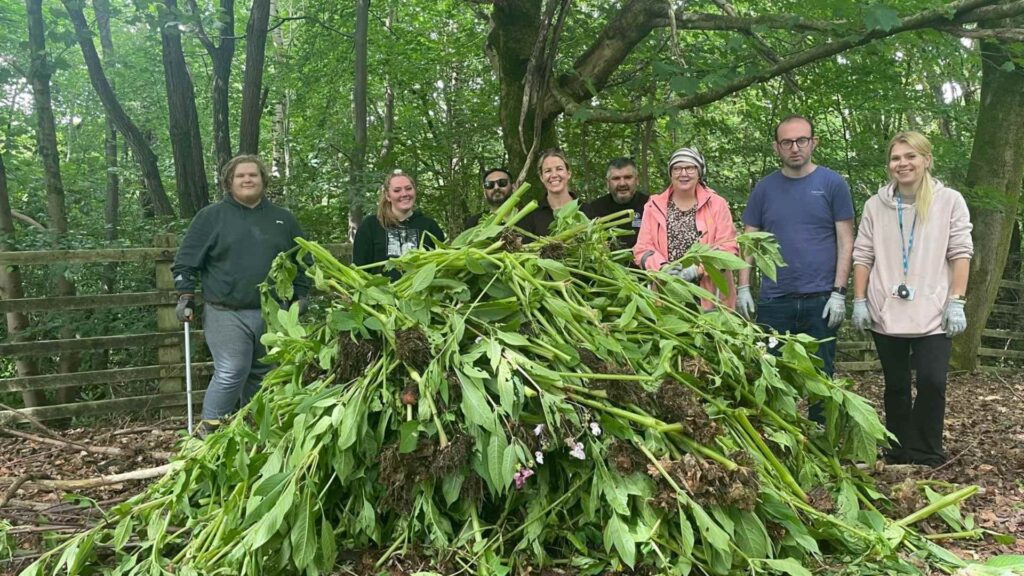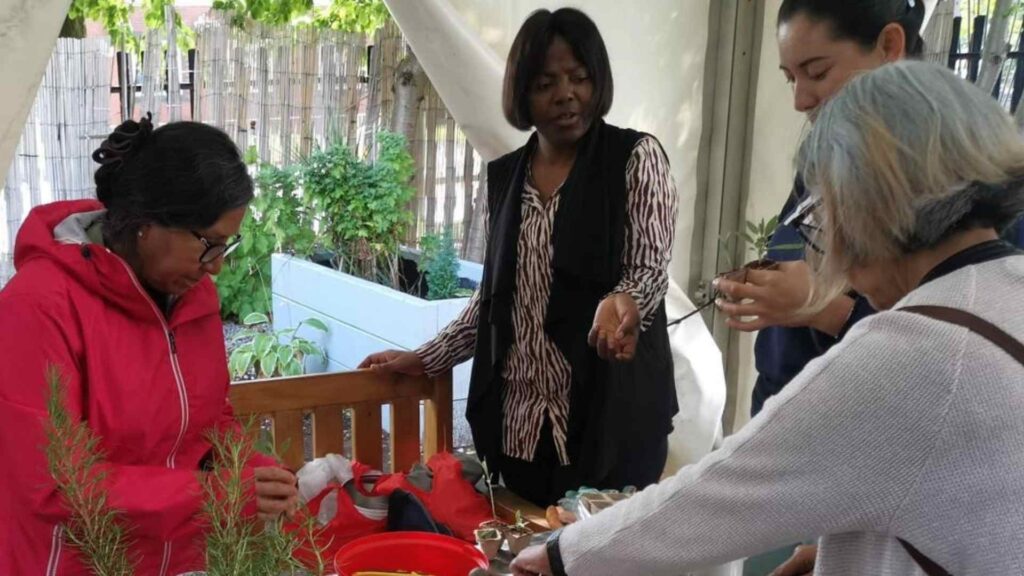
Funding Acknowledgement: This project was funded by Defra and NHS England’s National Green Social Prescribing programme.
Information provided by Professor Michelle Howarth, Edge Hill University.
Across Greater Manchester, communities have been discovering a new route to better health through nature. The Greater Manchester Nature for Health programme (GMNH) pioneers the use of green social prescribing (GSP) to connect people with outdoor activities and green spaces that support both mental and physical wellbeing.
From guided walks in local parks to gardening, conservation, and other nature-based interventions, the programme has transformed the way individuals engage with their environment, helping to reduce stress, anxiety, and social isolation. Recognising the potential of GSP to improve health outcomes while delivering economic benefits, Edge Hill University’s (EHU) team was commissioned to undertake a comprehensive evaluation of the programme.
The challenge
Non-communicable diseases (NCDs) such as cardiovascular disease, type 2 diabetes, and respiratory conditions remain leading causes of morbidity and mortality worldwide. In Greater Manchester, these issues are compounded by health inequalities, with local authorities reporting higher rates of chronic disease, alcohol-related harm, and poor mental health than the national average.
Project aims and objectives

The aim of this project was to evaluate the impact and economic value of GMNH, providing evidence to guide strategic planning, funding, and service delivery. Our team’s objectives for the evaluation were to:
- Conduct a systematic scoping review of economic evaluations of green social prescribing.
- Undertake stakeholder analysis to understand expected delivery outcomes.
- Perform a cost-benefit analysis of direct and indirect costs and benefits using existing data.
- Provide actionable feedback on social, environmental, and health outcomes to support programme scale-up.
The impact of the Greater Manchester Nature for Health programme
Green social prescribing has emerged as a promising solution, providing nature-based activities that can improve wellbeing, reduce social isolation, and support healthier lifestyles.
Through a national report, undertaken by Dayson et al, is has been found that the Nature for Health programme alone has received over 1,100 referrals, benefiting 940 participants through improved happiness, life satisfaction, and reduced anxiety. Economic modelling suggests that for every £1 invested, the programme could save the NHS around £102,440 over 31 months, demonstrating strong cost-effectiveness.
The EHU research builds on the national report and provides important evidence on how green social prescribing can contribute to reducing health inequalities, improving wellbeing, and delivering cost-effective solutions for health systems.
Evaluating GSP is not without challenges, however. Inconsistent outcome measures, small sample sizes, and data access issues due to GDPR make robust analysis difficult. The team from Edge Hill applied rigorous methodologies to generate meaningful, comparable insights that will inform future decision-making and programme expansion.
Our team’s work has provided independent, evidence-based insights into the programme’s effectiveness, reach, and cost-benefit impact, helping NHS Greater Manchester and partners make informed decisions about sustaining and scaling these vital services in the future.
The evaluation has already had a tangible impact on NHS Greater Manchester strategy. Key outcomes that have been highlighted from the evaluation include:
- The programme has successfully targeted vulnerable populations, with 83% of participants residing in the highest areas of deprivation (IMD).
- Mental wellbeing has been improved substantially, with average SWEMWBS scores rising from 22.6 to 27.7 post-intervention.
- Net economic benefit per participant ranges between £452.02 and £2,529.91, providing strong evidence for continued investment.
“The rigorous evaluation delivered by the EHU team has provided conclusive evidence that green social prescribing, and nature-based interventions more generally, provide the health system with a trusted, viable and cost-effective method for dealing with our populations’ unaddressed health needs. This is particularly important as the whole health system shifts to a person-centred, preventative approach. We’ll be using the evaluation report to help shape strategy and policy and it will be a key component in our toolkit as we influence senior leaders and funders to help our residents Live Well.”
Jon Myint, Programme Manager, NHS Greater Manchester
What next?
The findings from the report are already shaping strategic planning and the future of GSP in Greater Manchester:
- The evaluation has been shared with the national GSP team to support nationwide scale-up.
- The evidence has been used to link Nature for Health with public health programmes like Live Well.
- The cost-benefit analysis has been used to support long-term investment rather than short-term project cycles.
The evaluation report has demonstrated that green social prescribing is both effective and economically viable, improving health outcomes in vulnerable populations while reducing strain on health services. By providing independent evidence of impact and cost-benefit, Edge Hill University has supported NHS Greater Manchester in validating the programme, advocating for sustained funding, and informing strategic planning to expand and embed these services for the future.
“Working alongside Greater Manchester’s Nature for Health programme has been a privilege. Their commitment to supporting communities through nature was central to our evaluation, which combined meaningful data collection with direct access to sites and participants. This enabled a robust economic analysis that we hope will inform future commissioning.”
Professor Michelle Howarth, Professor in Health and Social Care, Edge Hill University
Go green with Edge Hill University

If your organisation is looking to implement or evaluate green social prescribing programmes, Edge Hill University can provide expert support.
Our team offers evaluation expertise, economic analysis, and practical guidance to help your programme be evidence-based, cost-effective, and tailored to local community needs.
Get in touch today to explore how we can help your organisation deliver impactful, nature-based health interventions.
Get in touch with us via: [email protected]
